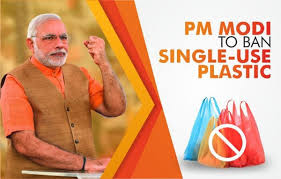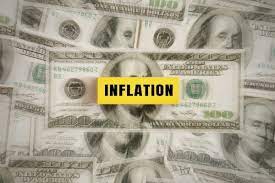PM Modi India’s love for the country and its people is well known. He has made it his mission to make India an economic powerhouse and a global leader in all fields. One of his top priorities has been to rid India of single-use plastic, which he believes is harming the environment and wildlife. On September 5th, he announced that he would ban all single-use plastic items starting January 1st, 2021.
India is committed to eliminating single-use plastics, says PM Modi at the One Ocean Summit
Prime Minister Narendra Modi recently announced that India is committed to eliminating single-use plastics during his speech at the One Ocean Summit. He expressed his happiness in joining the global initiative to clean up and protect oceans, which is a major concern for many countries around the world. PM Modi emphasized that India has already taken several steps towards reducing plastic waste by banning certain types of plastic items.
India has been making efforts towards achieving sustainability for some time now, especially when it comes to environmental issues. In 2018, India launched a national campaign called “Swachh Bharat Abhiyan” or “Clean India Mission,” which aimed at creating awareness about sanitation and hygiene practices while also promoting sustainable development. The campaign has been successful in improving waste management systems in various cities across the nation.
The commitment made by PM Modi at the One Ocean Summit will undoubtedly strengthen India’s resolve towards achieving its sustainability goals. By eliminating single-use plastics, India will not only contribute to protecting marine life but also promote sustainable development practices that can be replicated globally.
India is committed to eliminating single-use plastics, says PM Modi
India has long been grappling with the problem of plastic pollution, with single-use plastics being a major contributor to the crisis. However, Prime Minister Narendra Modi has reaffirmed India’s commitment to tackling the issue by announcing that the country will eliminate all single-use plastics by 2022. This ambitious target comes as part of India’s broader efforts to promote sustainability and reduce its carbon footprint.
To achieve this goal, India is implementing a range of measures such as imposing hefty fines on those who violate the ban on plastic bags and phasing out single-use plastics in government offices and public spaces. The Indian government is also encouraging businesses to adopt sustainable practices and explore eco-friendly alternatives to traditional plastics. These initiatives are expected to have far-reaching benefits for both people and planet, ranging from cleaner air and waterways to improved public health.
Overall, India’s commitment towards eliminating single-use plastics is an important step towards creating a more sustainable future for generations to come. By taking bold action against plastic pollution, India can serve as an inspiring example for other nations around the world looking to address this global challenge.
PM Modi announces plans to ban single-use plastics
In his speech on Independence Day, Indian Prime Minister Narendra Modi announced that the country will ban the use of single-use plastics by 2022. The move is part of a larger effort to reduce plastic pollution and improve environmental sustainability in India.
The announcement has been met with mixed reactions from the public, with some applauding the government’s efforts to address environmental issues, while others are skeptical about how feasible it is to eliminate single-use plastics altogether. However, it is clear that this decision will have significant implications for manufacturers and businesses that rely on plastic packaging.
To achieve this ambitious goal, India will need to implement a comprehensive strategy that includes education campaigns to raise awareness about the negative impact of single-use plastics and incentives for companies to transition towards more sustainable alternatives. It remains to be seen how successful this initiative will be in practice, but there is no doubt that it represents an important step towards reducing plastic waste and protecting our planet.
The benefits of banning single-use plastics
Banning single-use plastics can bring numerous benefits to the environment and public health. First, it can significantly reduce plastic pollution in oceans and landfills, which poses a threat to marine life and contributes to climate change. Single-use plastics take hundreds of years to decompose, so even small items like straws or utensils can accumulate over time and harm ecosystems.
Secondly, banning single-use plastics can encourage the development of eco-friendly alternatives such as biodegradable packaging materials made from plant-based sources. This not only reduces waste but also creates new opportunities for sustainable businesses.
Lastly, reducing our reliance on single-use plastics can improve public health by limiting exposure to harmful chemicals that leach into food and beverages from plastic containers. These chemicals have been linked to various health problems such as hormone disruption and cancer.
In conclusion, banning single-use plastics is a crucial step towards creating a cleaner, healthier planet for future generations. It requires a collective effort from individuals, businesses, and governments worldwide to make a significant impact in protecting our environment.
The ban in India
The ban on single-use plastics in India has been a significant step towards environmental sustainability. Prime Minister Modi’s recent announcement to eliminate single-use plastic by 2022 has been well-received by the public, and it is expected to reduce India’s carbon footprint significantly. Several states have already banned single-use plastics, and many others are in the process of doing so.
The ban has not only helped promote eco-friendliness but also created a new market for sustainable alternatives such as bamboo toothbrushes, paper straws, jute bags, and metal water bottles. Many small businesses have started producing eco-friendly products that are biodegradable and do not harm the environment. These products are also affordable for consumers who were previously unable to afford sustainable products.
Despite some initial challenges in implementing the ban, such as lack of awareness among people about sustainable alternatives or inadequate waste management infrastructure, it is hoped that with time, these issues will be addressed efficiently. The government’s decision to implement this ban demonstrates its commitment towards creating a better future for all citizens while taking necessary steps towards environmental conservation.
What the ban means for the environment
The ban on single-use plastic in India has significant implications for the environment. Single-use plastics are a major source of pollution and contribute to the degradation of our ecosystem. These plastics take hundreds of years to decompose, which means they continue to pollute our land, waterways and oceans for generations. By banning these types of plastics, India is taking an important step towards protecting its environment.
Moreover, the ban will help reduce India’s carbon footprint by decreasing its dependence on oil production. The production and distribution of single-use plastics require large quantities of fossil fuels that emit greenhouse gases into the atmosphere. By reducing the demand for single-use plastic, India can significantly reduce its carbon emissions.
Additionally, the ban will promote sustainable living practices among citizens and businesses alike. It will encourage people to switch to more eco-friendly alternatives such as reusable bags and containers. This shift towards sustainable living can create a ripple effect that could potentially spread across other industries and countries as well. Overall, this is a positive step towards building a greener future for generations to come.
Lessons learned from other countries’ plastic bans
India is one of the largest contributors to plastic waste, producing around 9.4 million tons of plastic annually. In a move to address this issue, Prime Minister Modi announced that India will ban single-use plastics by 2022. This decision is expected to have a significant impact on reducing plastic pollution in the country.
Other countries have already implemented similar bans and restrictions on single-use plastics with positive outcomes. For example, Rwanda has banned almost all types of single-use plastics and has seen a dramatic reduction in plastic pollution throughout the country. Kenya also implemented a ban on plastic bags in 2017 which has led to cleaner streets and waterways.
These successful initiatives show that it is possible for countries to take action against plastic waste and see positive results. By learning from the successes of other nations, India can improve its own efforts toward tackling this global crisis.
conclusion
In conclusion, India’s Prime Minister Narendra Modi has made a bold move in joining the fight against single-use plastic. This decision is both timely and necessary given the growing concerns around plastic pollution and its devastating effects on our planet. By taking such a stance, India is sending a powerful message to other nations that it is time to take decisive action in protecting our environment.
Furthermore, this move shows that even large countries with significant economic growth can prioritize environmental sustainability. This decision will undoubtedly spur innovation in alternative materials and packaging solutions. It will also encourage businesses to adopt more sustainable practices, thus reducing their environmental footprint.
In summary, Prime Minister Modi’s announcement represents an important step towards creating a more sustainable future for all of us. It demonstrates leadership and a willingness to take bold actions to protect our planet from the damaging effects of single-use plastics. We must now follow his lead and continue working together toward reducing our reliance on these harmful materials for the sake of future generations.
Read Also: Dell XPS 15 Touch Screen Review: Still The Best Only Faster















